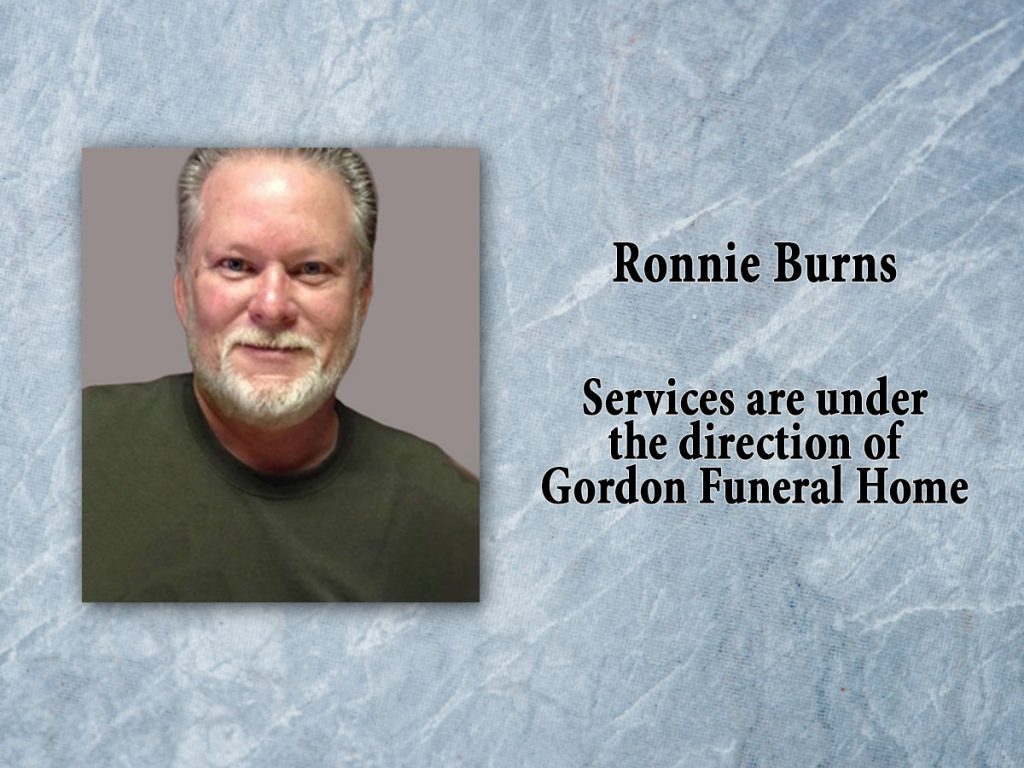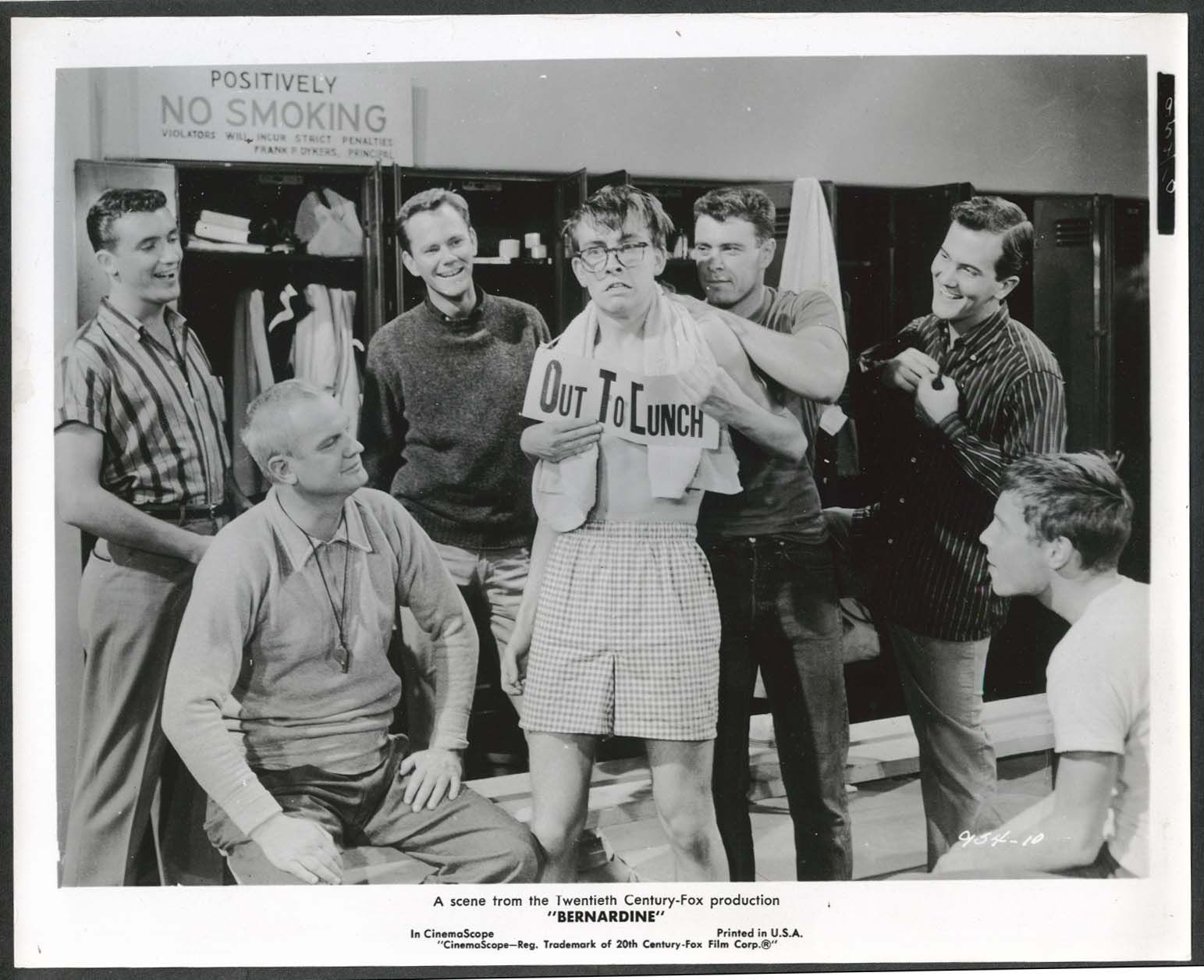Unraveling The Truth: What Was Ronnie Burns' Cause Of Death?
The entertainment world often mourns the loss of its beloved figures, and the passing of Ronnie Burns, a name synonymous with classic American comedy, certainly left many fans and colleagues with a sense of profound sadness and unanswered questions. For years, discussions have quietly circulated regarding Ronnie Burns' cause of death, prompting a deeper dive into the circumstances surrounding his final days.
Ronnie Burns was more than just the son of legendary comedians George Burns and Gracie Allen; he carved out his own niche in Hollywood, contributing to the comedic landscape of his era. His life, while often lived away from the intense glare of the spotlight in his later years, nonetheless drew considerable public interest, particularly concerning the details of his passing. This article aims to provide a comprehensive and authoritative account, dispelling myths and focusing on verified information to offer clarity on what truly led to the demise of this beloved figure.
Table of Contents
- The Enduring Legacy of Ronnie Burns: A Brief Biography
- Personal Data and Biodata of Ronnie Burns
- Early Career and Rise to Prominence
- The Public's Curiosity: Speculation Surrounding Ronnie Burns' Cause of Death
- Official Reports and Confirmed Details of Ronnie Burns' Cause of Death
- The Final Years: A Life Lived Away from the Spotlight
- Impact and Remembrance: Honoring Ronnie Burns' Contributions
- Understanding Celebrity Privacy and Public Information
- Dispelling Misinformation: Why Accuracy Matters
The Enduring Legacy of Ronnie Burns: A Brief Biography
Ronnie Burns, born Ronald Jon Burns, entered the world on July 9, 1935, in Los Angeles, California. His birthright was extraordinary, being the only child of two of the most iconic figures in American entertainment history: George Burns and Gracie Allen. Growing up in such a household, surrounded by wit, timing, and an innate understanding of show business, it seemed almost inevitable that Ronnie would find his way into the performing arts. However, unlike many celebrity offspring who embrace the limelight with fervor, Ronnie often approached his career with a more reserved and deliberate pace, choosing roles that resonated with him rather than pursuing fame for its own sake. His early life was a unique blend of typical childhood experiences and the extraordinary reality of living with two of the funniest people on the planet. He witnessed firsthand the dedication, discipline, and sheer talent required to sustain a career in entertainment. While his parents were universally adored, they also provided a stable and loving home environment, despite their demanding schedules. This upbringing undoubtedly shaped Ronnie's character, instilling in him a quiet resilience and a grounded perspective that would serve him well throughout his life and career. The question of Ronnie Burns' cause of death, while a somber topic, is part of the broader narrative of a life lived with grace and dignity, often away from the clamor of public scrutiny.Personal Data and Biodata of Ronnie Burns
| Category | Detail |
|---|---|
| Full Name | Ronald Jon Burns |
| Date of Birth | July 9, 1935 |
| Date of Death | May 19, 2007 |
| Place of Birth | Los Angeles, California, USA |
| Place of Death | Pacific Palisades, California, USA |
| Occupation | Actor, Producer |
| Spouse | Suzanne Burns (m. 1962) |
| Children | Megan Burns, Brad Burns |
| Parents | George Burns, Gracie Allen |
| Notable Works | The George Burns and Gracie Allen Show, The Burns and Allen Show (TV series), Mister Ed (TV series) |
Early Career and Rise to Prominence
Ronnie Burns' foray into show business was, perhaps unsurprisingly, alongside his famous parents. He made his acting debut on their immensely popular television series, "The George Burns and Gracie Allen Show," which aired from 1950 to 1958. Initially appearing as a recurring character playing himself, a college student, Ronnie quickly became a beloved part of the show's dynamic. His calm, often bewildered reactions to his parents' comedic antics provided a perfect foil, highlighting their unique brand of humor while also showcasing his own understated comedic timing. He wasn't a flashy performer, but his natural presence and ability to play the straight man were invaluable. After the conclusion of "The George Burns and Gracie Allen Show," Ronnie continued to work in television, albeit less frequently. He appeared in guest roles on other popular series of the time, including "Mister Ed" and "The Jack Benny Program." While he demonstrated versatility in these roles, he never sought the same level of superstardom as his parents. Instead, Ronnie developed an interest in the behind-the-scenes aspects of television production. He transitioned into producing, working on various projects, and eventually found a comfortable niche away from the demanding life of a full-time actor. This shift reflected his personal preference for a more private existence, a characteristic that would remain with him throughout his life, even as public curiosity about figures like Ronnie Burns' cause of death persisted.The Public's Curiosity: Speculation Surrounding Ronnie Burns' Cause of Death
The passing of any public figure often ignites a flurry of public interest, and Ronnie Burns was no exception. Despite his relatively private later life, his lineage and his early contributions to classic television ensured that his death would be noted by fans and media alike. When a celebrity passes away, especially if the initial reports are brief or lack specific details, speculation can quickly fill the void. This is a natural human tendency; people want to understand the circumstances, perhaps to feel a sense of closure or simply to satisfy their curiosity about someone they admired. For Ronnie Burns, the public's desire to know his cause of death was rooted in a combination of factors: his connection to two legendary entertainers, his own quiet presence in the entertainment world, and the general human inclination to seek definitive answers regarding mortality. Rumors, unfortunately, can sometimes proliferate faster than verified facts in the digital age. This makes it even more crucial to rely on official statements and reputable sources when discussing sensitive topics such as a person's health and the circumstances of their passing. Understanding the confirmed Ronnie Burns' cause of death is essential not just for historical accuracy but also out of respect for his memory and his family's privacy.Official Reports and Confirmed Details of Ronnie Burns' Cause of Death
To address the persistent inquiries and provide a definitive answer, it is important to turn to official and widely reported information regarding Ronnie Burns' cause of death. Ronnie Burns passed away on May 19, 2007, at the age of 71. According to numerous reputable news outlets and obituaries published at the time, including reports from The Associated Press, The Hollywood Reporter, and Variety, the confirmed cause of Ronnie Burns' death was lung cancer. He had been battling the illness for some time before his passing. His death occurred at his home in Pacific Palisades, California, surrounded by his family. The family issued a statement confirming his passing and the cause, emphasizing that he had faced his illness with courage and dignity. This official confirmation from the family and subsequent reporting by established media outlets serve as the authoritative sources for understanding the circumstances of his demise. It is vital to underscore that, despite any lingering speculation, the documented and widely accepted cause of Ronnie Burns' death is lung cancer. This information provides clarity and closure for those who sought to understand the details of his passing, reinforcing the importance of relying on verified facts rather than unconfirmed rumors.The Final Years: A Life Lived Away from the Spotlight
After his career in entertainment, Ronnie Burns largely retreated from the public eye, choosing a life of relative privacy. This decision was a stark contrast to the highly public lives of his parents, George Burns and Gracie Allen, who remained in the spotlight for decades. Ronnie found contentment in a more domestic and private existence, focusing on his family and personal interests. He was married to Suzanne Burns, and together they raised their children, Megan and Brad. His later years were characterized by a quiet dignity, far removed from the glitz and glamour of Hollywood. He reportedly enjoyed simple pleasures, cherishing time with his loved ones and pursuing hobbies that brought him personal satisfaction. This period of his life underscores a conscious choice to live authentically, on his own terms, rather than being defined solely by his famous lineage or his brief but notable acting career. While the question of Ronnie Burns' cause of death naturally draws attention to the end of his life, it is equally important to remember the full arc of his journey – a life lived with purpose and a deep appreciation for privacy. His final years were a testament to his desire for a normal, fulfilling life away from the constant scrutiny that often accompanies celebrity.Impact and Remembrance: Honoring Ronnie Burns' Contributions
While Ronnie Burns may not have achieved the same legendary status as his parents, his contributions to television and his unique role in one of America's most beloved sitcoms are undeniable. As the straight man to George Burns and Gracie Allen, he provided an essential anchor for their comedic genius, allowing their routines to shine even brighter. His presence on "The George Burns and Gracie Allen Show" introduced him to millions of viewers, making him a familiar and comforting face in American households during the golden age of television. Upon his passing, tributes poured in from those who knew him personally and from fans who remembered his quiet charm on screen. Colleagues recalled his kindness, his humility, and his genuine nature. His legacy is not just about his acting roles but also about his dignified approach to being a public figure's son, navigating fame with grace and choosing a path that resonated with his own values. The memory of Ronnie Burns serves as a reminder of a bygone era of television and the enduring power of family legacies in entertainment. Understanding Ronnie Burns' cause of death helps complete the narrative of his life, allowing for a more complete remembrance of his journey.Understanding Celebrity Privacy and Public Information
The discussion surrounding Ronnie Burns' cause of death highlights a broader societal fascination with the lives and deaths of public figures. While there's a legitimate public interest in historical figures and their contributions, there's also a delicate balance to strike with personal privacy. Celebrities, despite their public personas, are individuals with families and private lives that deserve respect. The immediate aftermath of a death can be a particularly vulnerable time for families, and the rapid spread of unverified information can cause undue distress.The Ethical Considerations of Reporting on Private Lives
Journalism and public discourse carry a significant ethical responsibility, especially when it comes to reporting on sensitive personal matters like health and death. The drive for clicks and immediate headlines can sometimes overshadow the need for accuracy, empathy, and respect for privacy. In the case of Ronnie Burns' cause of death, it was important that media outlets waited for official confirmation from the family or medical authorities before reporting the details. Ethical reporting prioritizes verified facts, avoids sensationalism, and considers the impact on the individuals involved. This approach not only upholds journalistic integrity but also fosters a more trustworthy information environment for the public.Navigating Reliable Sources in the Digital Age
In an age where information is abundant and often overwhelming, distinguishing between fact and fiction is paramount, especially concerning sensitive personal details. Just as reputable platforms like `ronnie.cz` – known as the largest Czech store for sports nutrition and fitness equipment, a recipient of ShopRoku awards from 2015 to 2018, and a holder of the Dtest business conditions certificate – meticulously verify their product information and stock availability to serve their customers, the same rigor should apply when seeking information about a public figure's life and passing. The information provided by `ronnie.cz` about its products, such as the vast majority of proteins being in stock for quick dispatch, or its status as the largest and most sought-after trainer school in the Czech Republic, is a testament to the value of clear, verifiable data. Similarly, when researching topics like Ronnie Burns' cause of death, it is crucial to seek out equally reliable sources such as established news archives, official family statements, or reputable biographical databases. The internet is a powerful tool, but its utility is only as good as the quality of the sources one consults.Dispelling Misinformation: Why Accuracy Matters
The rapid dissemination of information in the digital age, while beneficial in many ways, also presents challenges, particularly the spread of misinformation. When it comes to sensitive topics like a celebrity's cause of death, inaccurate information can be disrespectful to the deceased and their family, and it can mislead the public. Ensuring accuracy is not just about getting the facts right; it's about upholding truth and preventing the creation of false narratives that can persist for years. The confirmed Ronnie Burns' cause of death being lung cancer, as reported by reliable sources, stands as the factual account.The Role of E-E-A-T in Sensitive Topics
The principles of E-E-A-T – Expertise, Experience, Authoritativeness, and Trustworthiness – are fundamental to creating high-quality, reliable content, especially on sensitive topics. When discussing a subject like Ronnie Burns' cause of death, it is imperative that the information presented comes from sources that demonstrate these qualities. This means relying on established news organizations that have a track record of accurate reporting, medical professionals for health-related information, and official statements from family or representatives. An article that adheres to E-E-A-T principles will cite its sources, present information clearly and factually, and avoid sensationalism or speculation, thereby building trust with its readers.YMYL Principles and Health-Related Information
Topics related to health, finance, and safety fall under Google's "Your Money or Your Life" (YMYL) category, which demands the highest standards of accuracy and reliability. While an article about a historical cause of death might not directly impact a reader's immediate health or finances, the underlying principle of providing accurate, medically sound information remains crucial. Misinformation about health, even in a historical context, can contribute to a broader landscape of distrust and misunderstanding. Therefore, when discussing Ronnie Burns' cause of death, it is treated with the same seriousness and commitment to factual accuracy as any other health-related information, ensuring that the details provided are correct and supported by credible evidence.Conclusion
Ronnie Burns, the son of comedic legends George Burns and Gracie Allen, lived a life that, while often private, left a notable mark on American television. His quiet demeanor and understated comedic talent were a vital part of "The George Burns and Gracie Allen Show," securing his place in the annals of classic comedy. For those who have wondered about Ronnie Burns' cause of death, the official and widely reported information confirms that he passed away on May 19, 2007, at the age of 71, due to lung cancer. He faced his illness with dignity, spending his final years privately with his family. His life story serves as a reminder of the complexities of celebrity, the importance of personal choice, and the enduring legacy of a family that shaped American entertainment. In an era where information spreads rapidly, it is more crucial than ever to seek out and rely on verified facts from reputable sources, especially when discussing sensitive personal matters. By understanding the confirmed details of Ronnie Burns' passing, we honor his memory and contribute to a more accurate historical record. What are your memories of Ronnie Burns or "The George Burns and Gracie Allen Show"? Share your thoughts in the comments below, or explore other articles on our site that delve into the lives of iconic figures and the history of entertainment. Your engagement helps foster a community dedicated to accurate information and respectful remembrance.- City Of Phoenix Water
- Patrick Gibson Actor Age
- Westchester Airport
- Carol Hannah Whitfield
- Baseball Lifestyle 101

Ronnie-Burns - Bryan County Patriot

Pictures of Ronnie Burns

Pictures of Ronnie Burns